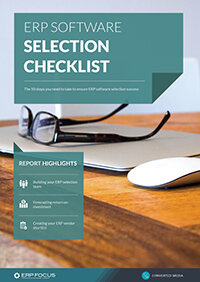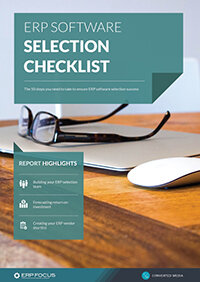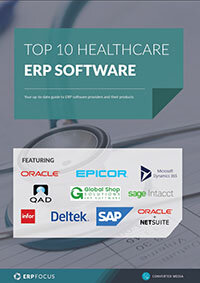Healthcare ERP: 4 points of comparison
Healthcare is a diverse industry and a manufacturer of medical devices will have different ERP software priorities than a drug manufacturer. On the other hand, all healthcare businesses have common ERP requirements that are unique to industry as a whole. Here are four functional areas of healthcare ERP which should form the basis of your comparisons between prospective systems during the selection process.
1. Lot tracking
All incoming items from suppliers are identified by a unique lot number. That number might be assigned by the supplier or assigned internally as the purchase order is received. In a similar vein, all material from production or processes gets a unique lot number. Healthcare ERP can track a purchased lot and know which manufacturing process lot it was used in and which customers received any of that lot in the SKU they bought. If a customer reports a problem, ERP lot tracking allows you to track back to every lot number and SKU that particular item was used in. You can then quarantine drug inventory or recall sold devices from customers.
Useful tool: ERP product comparison engine - quickly compare 100’s of ERP products to find the best for your business
Lot tracking is a legal requirement for many healthcare businesses, so should be the first area of prospective systems you compare. The FDA requires that complete tracking for devices already delivered to a customer must be completed within ten days. Compare the performance of your shortlisted ERP systems on this task. If your products are pharmaceutical, your lot tracking requirements go beyond your inventory through distributors, logistics parties, pharmacies, and other retailers. With this in mind, it is important to assess the ease with which prospective systems can integrate with supply chain partners.
2. Supplier management
First tier and many second tier suppliers manufacture products to your specifications. Your customers purchasing a heart monitor and regulators who help ensure the safety of such products outside your business want assurance that their requirements are met by your suppliers as if you were the producer. ERP supplier management provides a set of tools which enable you to monitor and track your supplier compliance.
Despite commonalities, healthcare ERP requirements vary wildly between healthcare sectors.
In order to compare supplier management between different healthcare ERP systems, you must first document your supplier relationships and requirements. This information will give you a foundation on which you can evaluate the document management, communication tools and supplier workflows offered by your shortlisted systems.
3. Internal process compliance
You have carefully defined processes to assemble or mix your healthcare products. Your regulatory compliance depends on following those processes. The right ERP for your business should track the production processes used and the ERP users who performed those processes. When an operator’s active certification is required, ERP can check the employee database and help ensure that the person performing an operation has that certification. Your internal compliance requirements will almost definitely go beyond these examples, so it is important to test systems you compare to ensure they meet your most stringent requirements.
4. External compliance reporting
Your healthcare business could already report to government agencies, industry groups and customers through regular reporting, possibly as a result of an audit. Ideally much of the reporting your require should be built in to your healthcare ERP. During the ERP selection stage, you should compare the business intelligence tools offered by shortlisted systems. Can they handle the data throughput you currently produce? Can they produce reports in the formats required by government regulatory bodies? Can the system monitor all the metrics required to produce these reports? All these questions need to be answered before your final selection decision is made.
Despite commonalities, healthcare ERP requirements vary wildly between healthcare sectors. Because of this variation, key points of comparison, such as those discussed in this article, are only of value when used in the context of your business requirements.
Free white paper

60-Step ERP Selection Checklist
Get the comprehensive checklist for your ERP selection project

Featured white papers
-

Top 10 Healthcare ERP System Comparison
Download
Related articles
-

What do we mean by 'medical ERP'?
The different types of medical ERP and some specialty medical ERP systems
-

Secret KPI: Why Your ERP Implementation Team Matters More Than Software
Learn how Godlan ensures successful ERP implementation for manufacturers with proven strategies &...
-

Healthcare and medical ERP: major products and players
Some of the best healthcare and medical ERPs available and how they could benefit you

